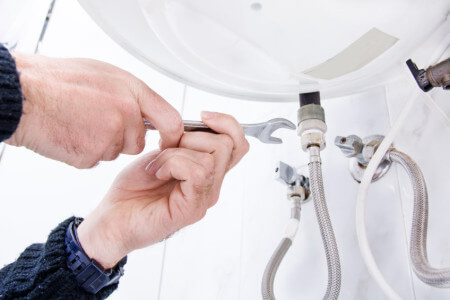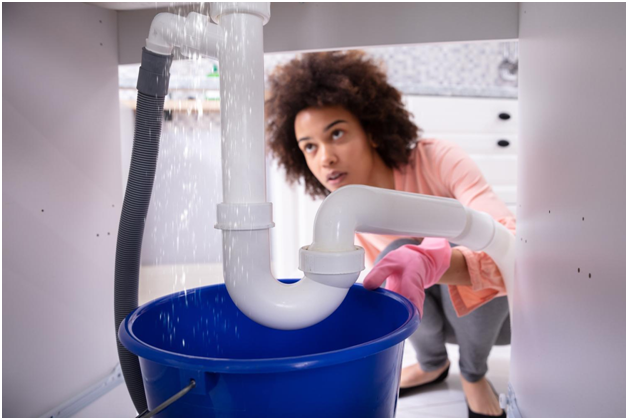Quick Plumbing Fixes for Critical Situations: Actions to Take Until Help Arrives
Quick Plumbing Fixes for Critical Situations: Actions to Take Until Help Arrives
Blog Article
Were you in search of critical info concerning What to Do During a Plumbing Emergency?

Plumbing emergencies can strike at any moment, triggering tension and prospective damage to your home. Whether it's a burst pipe, a clogged drainpipe, or a dripping tap, recognizing just how to handle the circumstance up until a professional plumbing arrives can save you from more difficulties. This post supplies vital emergency plumbing tips to aid you alleviate damages and restore control during a pipes situation.
Shut off the Supply Of Water
The initial step in any pipes emergency situation is to turn off the water system. For localized issues, such as a dripping tap or commode, shut off the valve near the fixture. When it comes to a significant leak or ruptured pipeline, locate your home's major water shut-off shutoff and turn it off promptly. Understanding the location of these shutoffs in advance can save beneficial time throughout an emergency.
Shut down Your Hot Water Heater
In certain emergency situations, such as a burst pipe, it's important to turn off your water heater. This stops overheating or damages to the system when water quits streaming. Turn off the power supply to the hot water heater (electric or gas) and allow it cool down to stay clear of potential dangers.
Temporarily Stop a Ruptured Pipe
A ruptured pipeline can result in substantial water damage in mins. To minimize the concern:
Call a specialist plumber promptly to deal with the trouble permanently.
Have an Emergency Pipes Kit
Prepare a standard plumbing emergency package to deal with small concerns efficiently. Your package should include:
Having these tools handy can make a significant difference in your capability to take care of emergencies.
Unclog Drains Pipes Securely.
A clogged drain can be a discouraging and unpleasant issue. Here's exactly how to tackle it:.
If these techniques do not function, stay clear of making use of too much pressure, as it may worsen the blockage.
Handle Overflowing Toilets.
An overflowing bathroom can trigger instant disorder. Below's what you need to do:.
Address Little Leakages with Momentary Repairs.
Small leaks can quickly come to be substantial troubles if left untreated. Utilize these short-term fixes until specialist aid shows up:.
While these repairs aren't permanent, they can aid lessen water loss and damage.
Handle Frozen Piping Very Carefully.
In colder environments, frozen pipes are an usual emergency. If you suspect an icy pipe:.
Know When to Call an Expert.
While quick fixes can help momentarily, certain pipes problems call for instant specialist interest. Call a plumber if:.
Without delay getting in touch with a specialist ensures the problem is resolved properly and protects against further issues.
Prevent Additional Damages.
Taking quick activity to reduce damages can conserve you time and money in the future. Here's exactly how:.
Conclusion.
Plumbing emergency situations can be frustrating, however with the appropriate expertise and tools, you can handle the circumstance properly until help shows up. By shutting off the water, addressing small leaks, and utilizing momentary solutions, you can minimize damage and keep your home safe. Keep in mind, these ideas are momentary remedies; constantly consult a licensed plumbing to deal with the source of the issue. Prep work and fast reasoning are your ideal allies in any kind of pipes emergency situation.
8 Helpful Tips for Managing Plumbing Emergencies at Home
If your plumbing system hasn’t failed once, wait for it because almost everyone has a story to tell. Sometimes, it could be simple emergencies such as a leaking pipe, a blocked cistern, or even a big burst pipe. In situations like this, you need to have some handy tips to save you some money and from possible damages.
Take care of minor issues early.
Sometimes, you could have avoided an emergency by taking proactive measures while it was still early. Some major plumbing emergencies can be a result of an ignored minor issue. We recommend that you have items like plumbing tapes and other related items. A plumbing tape can allow you to manage minor leaks before the plumber arrives.
Cut off the water supply.
This tip is essential in almost any type of leakage problem. For problems like minor leakages in the toilet or kitchen, turn off the supply that takes water to the affected pipes. If the leakage is a major pipe, you must shut off the supply valve to the entire building. This will help you avoid flooding your home and neighbors if you share a flat.
Know your plumbing system
Folks typically move into a new apartment without understanding the water supply around the building. This can prove disastrous if a water emergency arises and the plumber is far away. The previous tip will prove useless if you don’t practice this one. More importantly, know where your water shut-off valve is located – you’ll need that knowledge to prevent potential home floods.
Have some common handy tools
There are lots of plumbing emergencies that you can handle without hiring a plumber. That’s why you must keep some tools available always. Some tools that you can use to fix simple plumbing emergencies easily include plumbing tapes, screwdrivers, thread seal tapes, plungers, pliers, tape measures, and rubber gloves.
Insulate your pipes from cold
You’ll save yourself from many plumbing expenses if you protect your water pipes from the cold. This is because of the harmful effects that cold weather can have on your pipes. During winter, your pipes can burst from being overly expected to freezing temperatures. So, make sure insulators are there to keep the pipes working correctly.
Avoid practices that will clog your toilet.
Many people indulge in practices that can damage the plumbing system of the entire building. One of these is when they use their toilet to dispose-off garbage. They flush all kinds of things, such as paper towels, bandages, hairs, female sanitary products, etc., down the toilet. This will block your toilet in the long run, incurring unnecessary expenditures. Dump such waste in the trash instead.
Check your dials regularly.
Sometimes, there could be leakages in your home without noticing them in time. So, constantly monitor your water meter dial. If the dial is reading when there is nobody using water, this is an indicator that there is leaking. Check for leaks immediately. Call a plumber as soon as possible if you can’t find any.
https://www.constructionplacements.com/8-helpful-tips-for-managing-plumbing-emergencies-at-home/

I hope you enjoyed reading our post about . Thanks a ton for taking time to read our content. Those who enjoyed reading our article please make sure you remember to pass it around. Thanks for your time. Please come by our site back soon.
Click Here Report this page